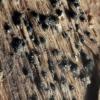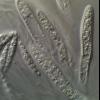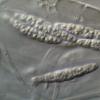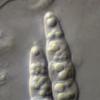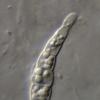
21-01-2026 16:32
Gernot FriebesHi,I need your help with some black dots on a lich

21-01-2026 16:48
Gernot FriebesHi,after my last unknown hyphomycete on this subst

20-01-2026 17:49
 Hardware Tony
Hardware Tony
I offer this collection as a possibility only as e

15-01-2026 15:55
 Lothar Krieglsteiner
Lothar Krieglsteiner
this one is especially interesting for me because

17-01-2026 19:35
Arnold BüschlenHallo, ich suche zu Cosmospora aurantiicola Lite

16-01-2026 00:45
Ethan CrensonHi all, On decorticated hardwood from a New York

18-01-2026 12:24
Hello.An anamorph located on the surface of a thin
Lophiostoma myriocarpum
Chris Yeates,
06-10-2014 20:36
 Bonsoir tous
Bonsoir tousI recently collected a partially-decorticated twig in woodland near a stream. I originally suspected that it might be a Chaetosphaeria, but under the microscope it was clearly not - fissitunicate asci proved that. Many, but by no means all, of the perithecia were somewhat laterally compressed and I considered Lophiostoma. Holm & Holm 1988 (Symb. Bot. Upsal. XXVIII) led me to Lophiostoma myriocarpum; the description fitted well, although the accompanying drawing (from the type collection) was not very convincing.
ASCOFrance came to the rescue in the form of Alain and Zotto:
http://www.ascofrance.com/search_forum/7390
I am pretty certain that my fungus is indeed Lophiostoma myriocarpum (or at the very least the same as Alain's fungus, although his spores are longer), this based on the narrowly fusoid multiguttulate spores 27.6-30.8 x 4.8-5.5µm. These were mostly 5-septate, though some were seen with up to 7 septa (the latter could be seen germinating from the polar cells - see the last photo).
As far as I can tell this taxon has not been recorded for Great Britain & Ireland, although there are two records for Lophiostoma vigheffulense (Pass.) Chesters & A.E. Bell. Holm & Holm suggest the two are conspecific - though the spore dimensions given in Chesters and Bell (Mycol. Pap. 120) are smaller and their drawing shows consistently 3-septate spores, with the comment that these are not constricted at the septa.
As ever comments and suggestions are more than welcome.
Cordialement
Chris

